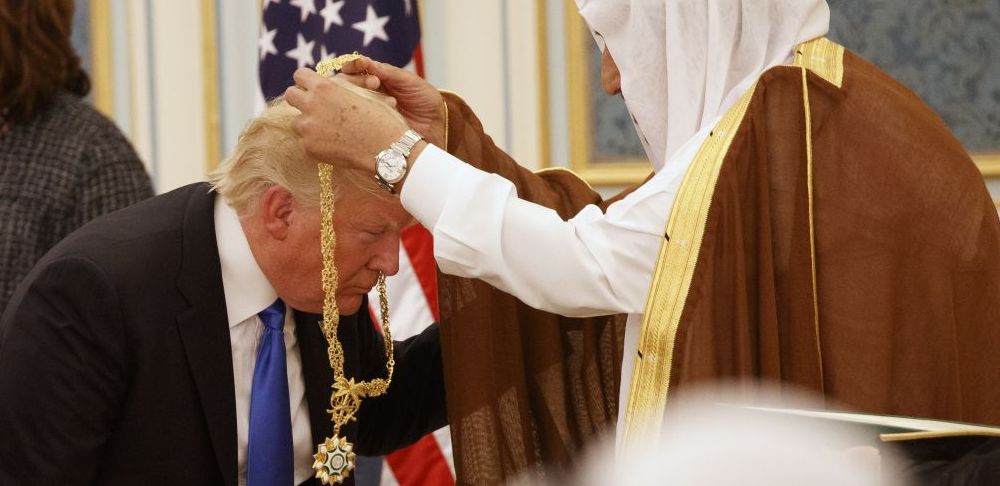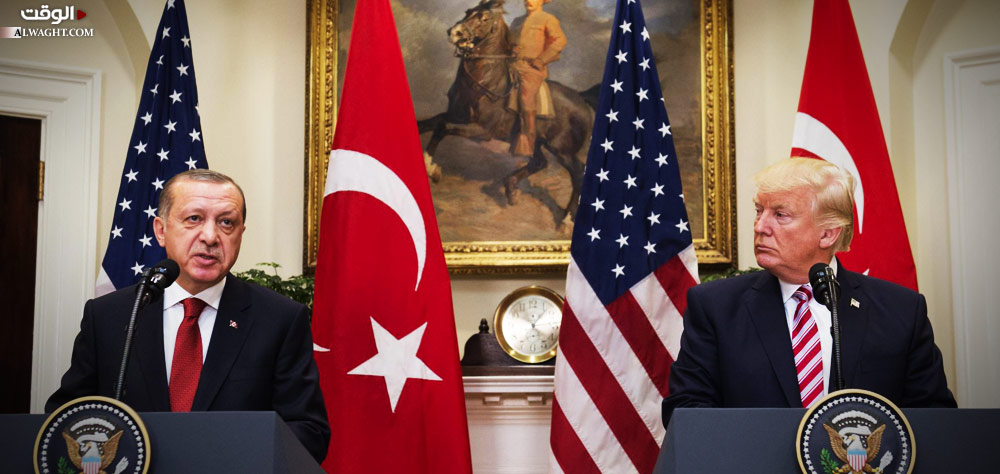Alwaght- Turkish President has vowed to continue backing Qatar and urged removal of a Saudi-led blockade of Doha.
Recep Tayyip Erdogan remarks came after the US-backed Saudi Arabia led UAE, Bahrain and Egypt to cut ties with Qatar, accusing the tiny Persian Gulf state of sponsoring terrorism.
“Now, there are ones who are bothered because of us being together with our Qatari brothers or sending and exporting food supplies, drugs etc – no matter if they are in hunger or thirst – should excuse us. We will continue to give all our support to Qatar,” Recep Tayyip Erdogan said at an iftar (fast-breaking meal) with members of his Justice and Development (AK) Party in Istanbul.
The Turkish leader has urged Saudi Arabia, as “the largest and most powerful state" in the Persian Gulf to reduce tensions and lift sanctions.
“It is wrong to add more troubles on top of everything in the term that the Muslim world is already struggling with a lot of problems,” he said. “I am calling you: There won't be any winners in the brother's fight.”
“You have to work for bringing brothers together. This is what we expect from Saudi, the Custodian of the Holy Mosques [in Mecca and Medina],” Erdogan added.
Late on Thursday, a joint statement by Saudi Arabia, Bahrain, Egypt, and the UAE accused 59 individuals and 12 charity organizations in Qatar of being "linked to terror".
Speaking about the allegations, Erdogan said: "There is no such thing. I know those foundations."
On Wednesday, Turkey's parliament ratified two deals on deploying troops to Qatar and training the resource-rich Arab sate's security forces.
The deal to send Turkish soldiers in was signed in April 2016 in Doha.
"The ratification of the military treaties is not an anti-Saudi move at all," Can Kasapoglu, a defence analyst from Turkey's EDAM, told Al Jazeera. "Turkey still sticks to 'I don't want problems between my two good friends' policy.
"Yet, although this is not an anti-Saudi position, it is a pro-Qatari one for sure. Ankara prioritized its geopolitical perspective, and showed that it holds its military presence [in Qatar] above the recent diplomatic crisis."
US backs Saudi Arabia

US President Donald Trump, who has recently signed a mega-arms deal with Saudi king Malik Salman, took side with Riyadh, accusing Qatar of sponsoring terrorism.
"The nation of Qatar unfortunately has historically been a funder of terrorism at a very high level," the American business man told reporters on Friday.
"So we had a decision to make, do we take the easy road or do we finally take a hard but necessary action. We have to stop the funding of terrorism. I decided ... the time had come to call on Qatar to end its funding," Trump said, adding that he helped plan the Qatar action with Arab leaders after a recent summit in Riyadh, Saudi Arabia.
Trump's harsh criticism of Qatar came after the Emir of Qatar has rejected an invitation by US president to visit the White.
in a statement, foreign minister Sheikh Mohammed bin Abdulrahman Al Thani has said Qatar's Emir Sheikh Tamim bin Hamad Al Thani would not leave the country while it was "in blockade", and therefore could not attend an offered mediation by US President Donald Trump at the White House.
Donald Trump, unlike Obama administration that has halted arms sale to Saudi Arabia “due to concerns over the widespread civilian casualties in Yemen” , stroke an arms deal with Riyadh worth $350 billion over 10 years and $110 billion that took effect immediately after it was signed in May.
Saudi Arabia launched its deadly campaign against Yemen in March 2015 to push back Ansarullah fighters from Sana’a and to bring back to power Abd Rabbuh Mansur Hadi, Yemen's president who has resigned and is a staunch ally of Riyadh.
The brutal aggression has so far claimed the lives of nearly 13,000 Yemenis mostly civilians including women and children.
The Saudi military aggression has also taken a heavy toll on Yemen’s facilities and infrastructure, destroying many hospitals, schools, mosques and factories.
The Saudi monarchy, like most of the Persian Gulf despotic monarchies is facing a legitimacy crisis as masses, getting inspiration from the Islamic awakening that ousted long-term dictators in Tunisia, Libya, Egypt and Yemen, continue to demand democratic rights. For now the Saudi regime has been able to brutally quell democratic voices within the kingdom but such tactics are not sustainable. The mega Saudi arms deal has once again exposed US double standards as far as democracy is concerned.
Washington claims its invasion of Afghanistan, Iraq and interference in other countries across the world was meant to promote freedom and democracy and protect human rights. Well, the Saudi regime completely tramples on the same values which the US claims to espouse.
By signing the arms deal with a despotic monarch, the US has effectively guaranteed unconditional support for ruling Al Saud clan to remain in power by any means possible at least in the next ten years when the contract is in effect.
Trump and Saudi King Salman also inaugurated what has been termed as ‘terrorist-monitoring center’ in Riyadh while it is a fact that lack of democracy and the rule of law are among the root causes of terrorism in the West Asia region. Additionally, Wahhabi extremism officially propagated by the Saudi monarchy and its hirelings serves as fuel for ISIS and other similar terrorist groups across the world.



























